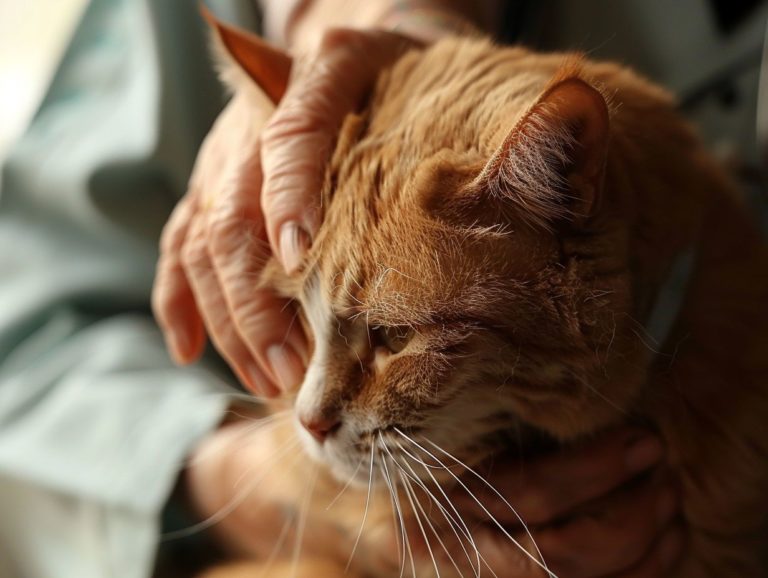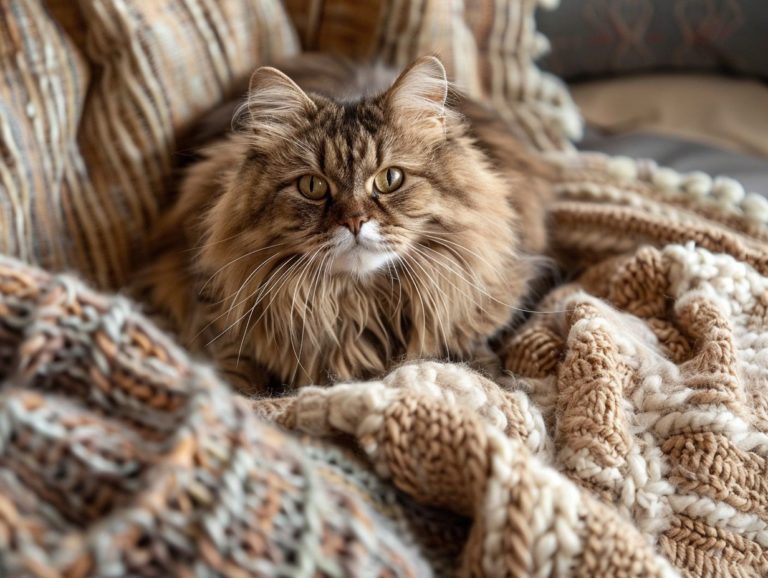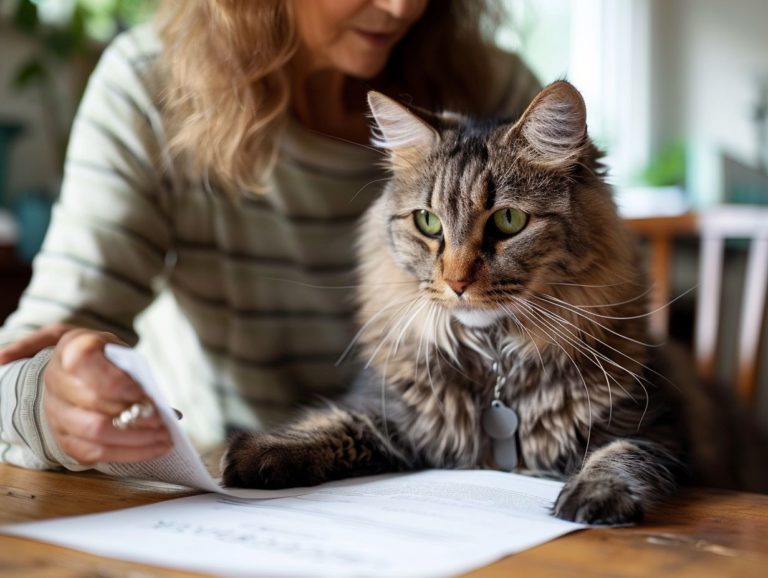How Senior Cat Insurance Can Save You Money In The Long Run
Senior cat insurance is essential and beneficial in meeting the heightened healthcare demands of older cats. In this guide, we will explore the significance of senior cat insurance and the advantages it offers for both your cat and your financial well-being. Topics covered include understanding the specific needs of senior cats, comparing the financial implications of insurance versus self-payment for procedures, and identifying affordable senior cat insurance policies that offer suitable coverage aligned with your budget and your cat’s health needs.
Key Takeaways:
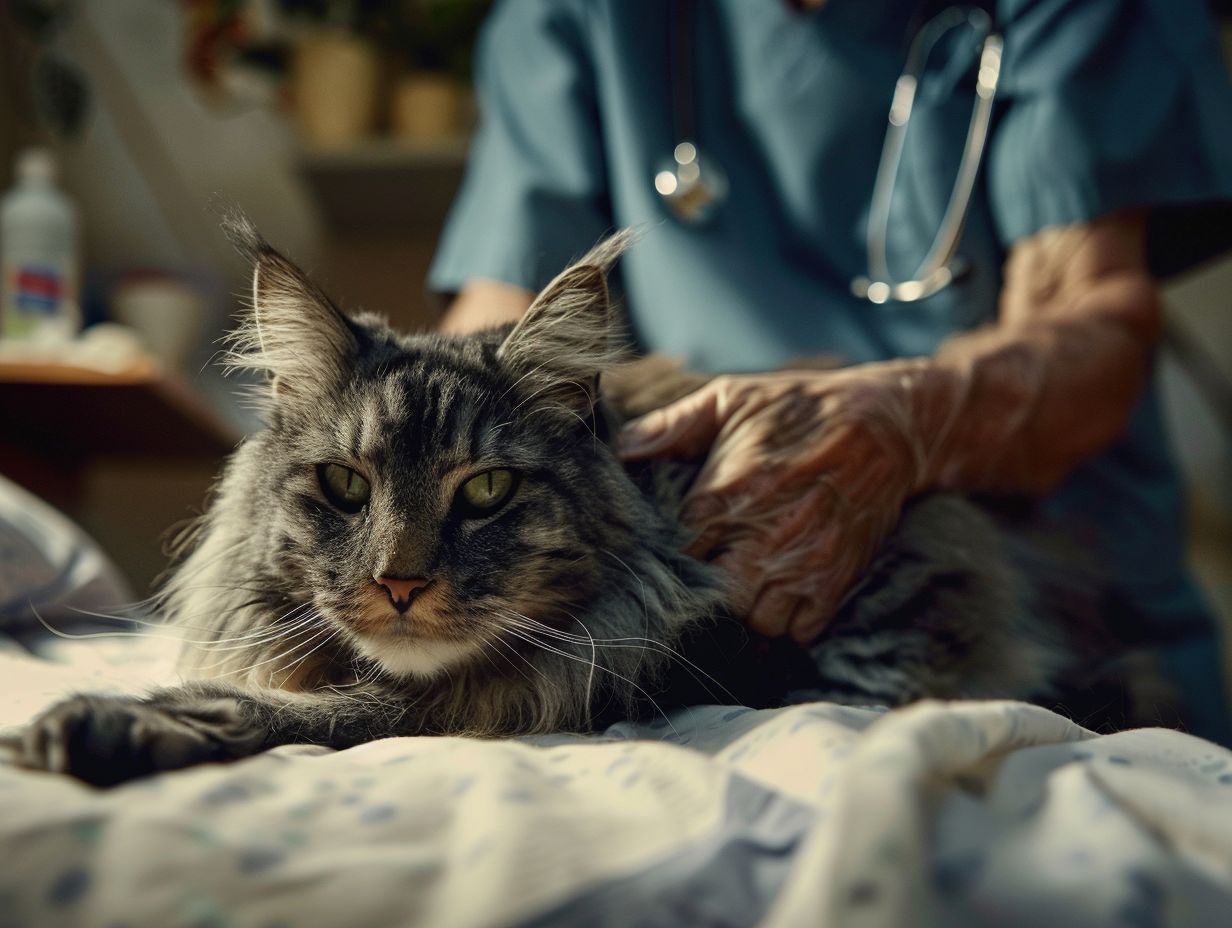
The Importance of Senior Cat Insurance
Senior cat insurance offers financial protection and peace of mind to pet owners as their aging cats encounter common age-related health issues that may necessitate frequent veterinary visits and significant financial costs. This insurance significantly alleviates the financial strain associated with medical treatments, diagnostic tests, and medications for age-related illnesses in senior cats.
Policy benefits include coverage for routine check-ups, vaccinations, dental care, and emergency services, allowing pet owners to ensure their senior cats receive essential medical care without concerns about expenses. Regular veterinary visits facilitated by the insurance policy promote early detection and management of evolving health issues, ultimately enhancing the quality of life and longevity of aging cats.
Understanding the Needs of Senior Cats
Understanding the unique requirements of older cats enables pet parents to offer the necessary care and attention to address age-related health issues, chronic conditions, and the timely veterinary care that older felines need. The special needs of older cats encompass several aspects: their immune systems weaken with age, rendering them more vulnerable to infections and illnesses. Regular veterinary check-ups play a crucial role in early detection and appropriate treatment. Changes in behavior, appetite, and mobility often signify underlying health issues that warrant medical intervention. Tailored diets are frequently essential for managing conditions like kidney disease or dental problems. Providing a comfortable and secure environment with easy access to litter boxes and cozy, peaceful resting spots contributes to the overall well-being of senior cats.
What Does Senior Cat Insurance Cover?
Senior cat insurance provides comprehensive coverage for emergency care, pre-existing conditions, and a variety of policy options tailored by pet insurance companies to address the specific needs of older cats. The benefits of pet insurance for senior cats include:
- Coverage for emergency care, giving peace of mind to owners knowing their cat can receive prompt medical attention in case of sudden health issues or accidents.
- Coverage for pre-existing conditions, which is particularly valuable for senior cat owners as older pets often have ongoing health issues that require continuous management.
- Options offered by pet insurance companies that allow owners to customize their policies to cater to the specific needs of senior cats, such as coverage for alternative treatments or therapies to address age-related conditions.
Common Medical Expenses for Senior Cats
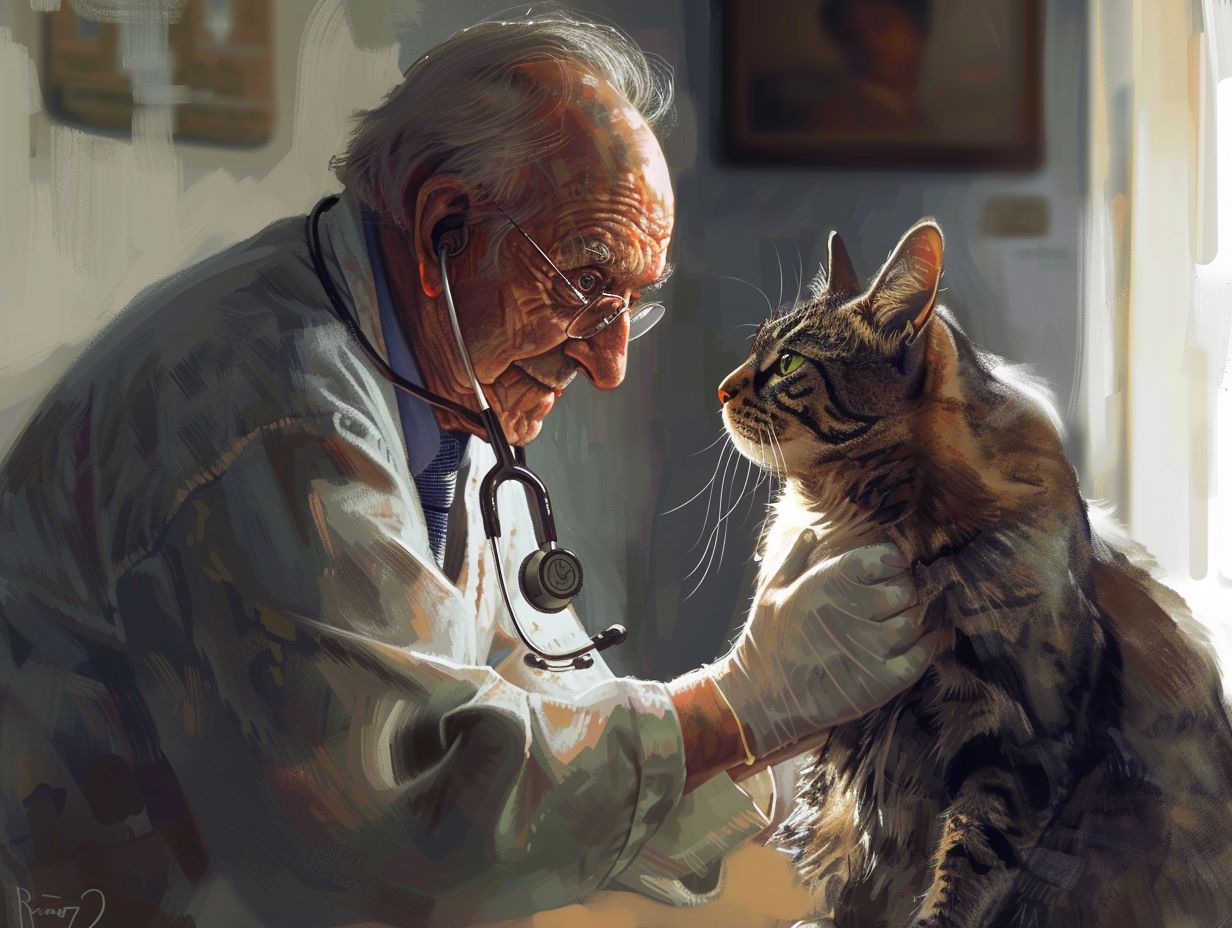
Common medical expenses for senior cats include high veterinary costs for chronic conditions, deductibles, reimbursement percentages, and the claims process for insurance coverage. Senior cats often have chronic conditions such as kidney disease, arthritis, diabetes, and hyperthyroidism, which require ongoing monitoring and treatment, resulting in high veterinary costs. If you’re concerned about coping with the rising costs of senior cat healthcare through insurance, consider getting senior cat insurance to save money in the long run.
It is important to understand deductibles, which represent the amount you must pay out of pocket before the insurance company begins reimbursement. Reimbursement percentages indicate the portion of costs covered by the insurance company. Filing a claim involves submitting all necessary documentation, such as medical records and invoices, and is the primary method to receive financial aid for your cat’s medical expenses.
How Senior Cat Insurance Can Save You Money
Senior cat insurance plays a significant role in alleviating financial burdens for pet owners by reducing costs associated with the healthcare needs of older cats through coverage options, deductibles, and reimbursement rates that make these needs more affordable.
The impact of senior cat insurance in cost reduction is twofold: it directly assists financially by covering a substantial portion of expenses related to older cat health and provides peace of mind, sparing pet owners from the stress of affording medical treatments. This financial relief ensures that other household necessities are not compromised to cover their senior pet’s care.
Tailored coverage options for senior cat insurance address specific needs of aging cats, including pre-existing conditions and chronic illnesses. For instance, veterinary expenses for an elderly cat diagnosed with kidney disease can vary from a few hundred to several thousand dollars.
Opting for appropriate coverage options enables pet owners to provide optimal treatment for their furry companions without fretting over the expenses involved in caring for older cats. Understanding the fine print of senior cat insurance policies give the power to pet owners to manage their out-of-pocket costs effectively and optimize the benefits offered by their insurance policies.
Similarly, comprehending reimbursement rates allows pet owners to grasp the percentage of veterinary expenses that will be covered by the insurance provider, enabling them to budget and plan for their pet’s healthcare expenses.
Cost Comparison to Paying Out of Pocket
When comparing the costs of senior cat insurance with the expenses of out-of-pocket care, pet owners can make informed financial decisions based on their individual financial situation, the maximum lifetime payout, and the maximum payout per incident.
Senior cat insurance offers peace of mind to pet owners who may face financial strain due to high veterinary expenses as their cats age. By understanding the costs associated with insurance versus out-of-pocket care, pet owners can accurately evaluate the benefits of insurance relative to the financial investment required.
Factors such as the maximum lifetime payout and maximum payout per incident enable pet owners to select an insurance plan that aligns with their budget and risk tolerance. This understanding give the power tos pet owners to make sound financial choices regarding the medical care of their senior cats.
Factors to Consider When Choosing a Senior Cat Insurance Plan
When selecting senior cat insurance, important factors to consider include coverage options, age restrictions, coverage for chronic conditions, and understanding waiting periods for policy activation. Along with coverage alternatives, pet owners should carefully review what each plan includes, such as routine check-ups or emergency care.
Age restrictions may differ among insurers, so it is essential to verify eligibility requirements for senior cats. Ensure that the insurance covers the chronic conditions that your cat may have. Understanding waiting periods is also crucial to know when the insurance benefits can begin.
Age and Health of Your Cat
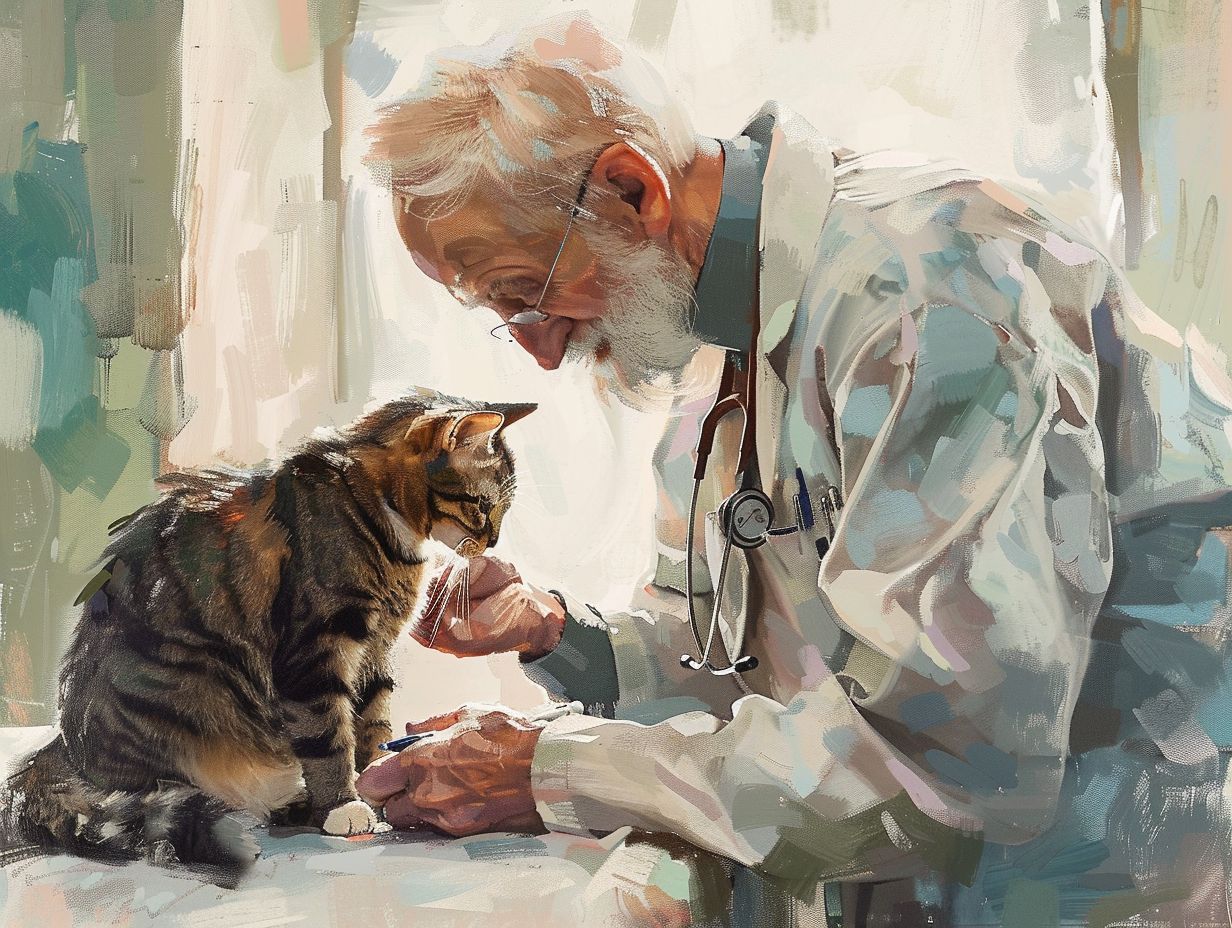
The age and current health status of your cat, including impact of age on senior cat insurance premiums, are key factors that determine the suitability of insurance coverage options and restrictions related to the insured cat’s age.
Determining these factors before purchasing an insurance policy can significantly impact the coverage that your cat is eligible to receive. Regular veterinary care will help assess your cat’s current health status and identify any potential financial benefits of insuring an older cat.
Age restrictions for cat insurance plans vary, so it is important to understand how your cat’s age may influence their eligibility for different coverage options. Having this understanding can assist you in making informed decisions to safeguard your cat’s healthcare and financial well-being.
Coverage and Premiums
When considering pet insurance for senior cat coverage, it is essential to evaluate the degree of coverage, deductibles, and reimbursement rates provided by the policy.
Senior cats are more prone to developing medical issues due to their age, necessitating a higher level of coverage to address potential healthcare needs. Check out what every cat owner should know about senior cat insurance.
Opting for higher coverage levels ensures a broader range of treatments and procedures are included, offering pet owners peace of mind. However, it is important to balance this with the deductible amount to maintain manageable out-of-pocket expenses.
Reimbursement rates determine the percentage of costs covered by the insurance provider. All these factors should be carefully deliberated to assess the overall value of a pet insurance policy for senior cats.
Tips for Finding Affordable Senior Cat Insurance
To obtain affordable senior cat insurance, one can search for policies with low monthly premiums and seek wellness plans that include coverage for regular vet check-ups and preventive care treatments. This approach ensures comprehensive coverage for your senior cat while staying within your budget.
When searching for affordable senior cat insurance, it is crucial to carefully review the coverage details of different policies to find the plans that offer the best balance between cost and benefits. Some pet insurance companies may provide discounts for enrolling your senior cat in a wellness program that covers regular check-ups, diagnostics, and preventive treatments, helping to reduce the likelihood and severity of future health issues.
Regardless of whether you have insurance for your senior cat, focusing on preventive measures such as vaccinations and yearly check-ups can help save on veterinary costs while ensuring your senior cat receives the necessary care for optimal health and happiness in the long run.
Shopping Around and Negotiating
To find affordable senior cat insurance, it is recommended to shop around, compare benefits offered by providers like MetLife Pet Insurance and Odie Pet Insurance, and negotiate for improved coverage benefits, reduced deductibles, and higher reimbursement percentages.
Exploring various insurance providers enables pet owners to gain a comprehensive understanding of the insurance market. By evaluating companies such as MetLife Pet Insurance and Odie Pet Insurance, individuals can assess different coverage options, premiums, and additional perks. Comparing benefits and exclusions across multiple policies give the power tos cat owners to make informed decisions that align with the needs of their senior felines. Check out this senior cat insurance policy guide for more information.
Negotiating with providers allows pet owners to customize their insurance to suit their budget and preferences, potentially securing more favorable terms like enhanced coverage benefits, lower deductibles, or increased reimbursement percentages.
Frequently Asked Questions
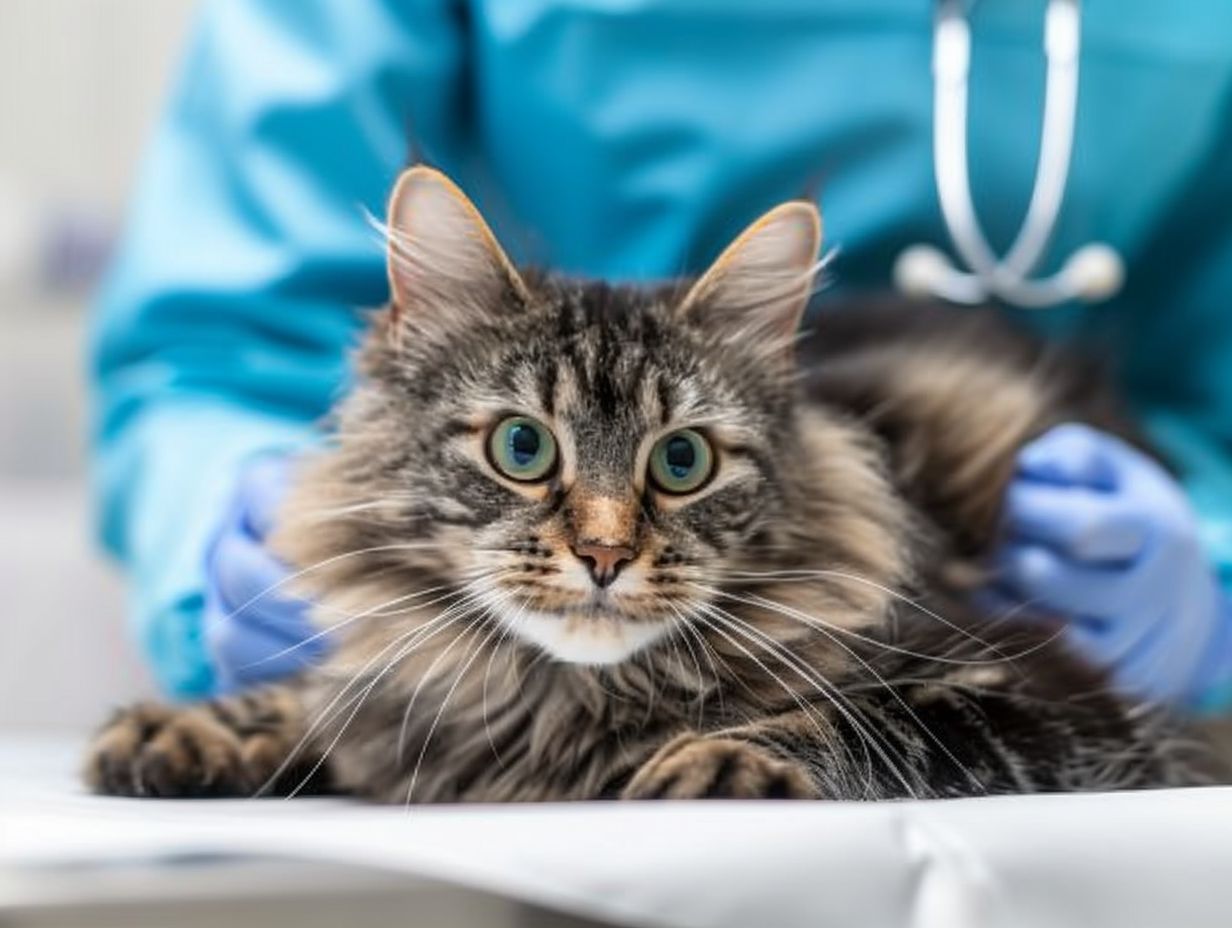
What is senior cat insurance?
Senior cat insurance is a type of pet insurance that specifically covers the medical needs of aging cats. It can help save you money in the long run by providing coverage for expensive treatments and procedures that senior cats may need.
What age qualifies a cat as a senior?
The age at which a cat is considered a senior can vary, but it is typically around 7-10 years old. This is when cats begin to experience age-related health issues and may require more frequent vet visits and medical care.
How can senior cat insurance save me money in the long run?
By having insurance coverage for your senior cat, you can avoid paying out of pocket for expensive medical treatments and procedures. This can save you thousands of dollars in the long run, especially as your cat continues to age and may require more frequent and costly medical care.
What types of medical expenses are covered under senior cat insurance?
Senior cat insurance typically covers a wide range of medical expenses, including but not limited to: surgeries, diagnostic tests, medications, and hospitalization. Some plans may also cover alternative therapies and chronic conditions.
Do all insurance companies offer senior cat insurance?
No, not all insurance companies offer specific coverage for senior cats. It’s important to research and compare different insurance plans to find one that best fits your senior cat’s needs and your budget.
Is it too late to get insurance for my senior cat?
It’s never too late to get insurance for your senior cat! While some companies may have age restrictions, there are still plenty of options available for senior cat insurance. Just be sure to read the fine print and understand any exclusions or limitations that may apply.

